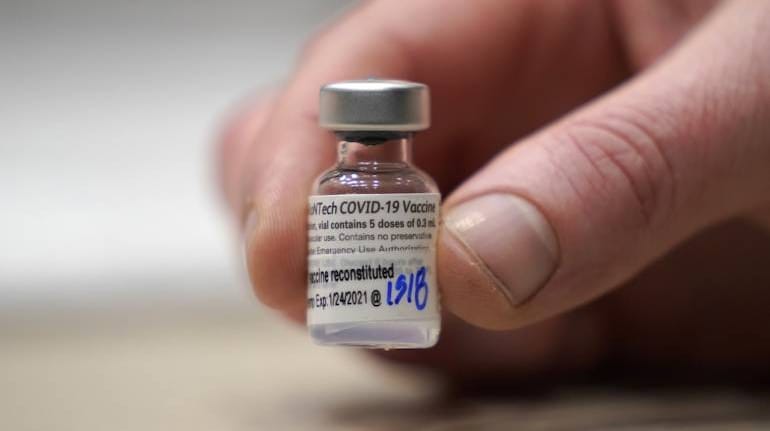
Medical experts have been urging the government to start preparing for a possible third wave of COVID-19 cases in India later this year. Some experts believe that the third wave of novel coronavirus infections could affect children more than the first two waves.
Rapid vaccination of the population is being seen as an effective way to curb further spread of COVID-19. However, India is currently not inoculating children or individuals below the age of 18.
The medical community has been calling for effective and safe doses for children before the third wave arrives. In the United States, Pfizer’s jab has already been approved for use for children between the age of 12 and 15.
Currently, Zydus' ZyCoV-D and Bharat Biotech’s Covaxin (already being used for adults) are under trial for children above the age of 12 in India.
Read | COVID-19 vaccine for children: Is it safe for my child to take the jab?
“Vaccination will not only help boost their (children’s) immunity, but also make attending schools and outings stress-free. It will help them live their childhood, and not be confined within four walls,” Dr Mayuri Yeole, Associate Consultant, Paediatrics, Apollo Hospitals told The News Minute.
“Like the flu vaccine, it seems essential to have a COVID-19 vaccine for children too – while it may not prevent children from contracting the novel coronavirus, it will help reduce morbidity and mortality which we are anticipating with the third wave,” Dr Yeole added.
Virologist Dr V Ravi told the Hindustan Times that the virus attacks people who are not immune. “You can get immunity from this virus either through infection or through vaccination. If not, the virus will definitely catch you. Adults, more people are getting infected — most in the first wave and second wave. Adults have vaccine so they are getting vaccinated. Children in the first wave we had only 4 percent (infection) across the country, in the second wave 10-15 percent,” Dr Ravi added.
Yet, some other medical experts say that there is no evidence to suggest that the possible third wave will affect children more. The government must focus on inoculating people above 18 years of age at a time when doses are in short supply, they suggest.
COVID-19 Vaccine Tracker: All you need to know about manufacturing and pricing
States bracing for third wave
With vaccines yet to be approved for children, many states have already started preparing to protect them. The Delhi government is reportedly planning a special task force for children in the national capital. In Karnataka, paediatric COVID care centres will be established in all districts.
Maharashtra’s Osmanabad district has also reportedly formed a task force. Mumbai’s Brihanmumbai Municipal Corporation (BMC) has also planned to set up a paediatric COVID care facility in the financial hub and a crèche network for children whose parents are in hospital for COVID-19 treatment.
Follow Moneycontrol’s full coverage of the coronavirus pandemic here
Discover the latest business news, Sensex, and Nifty updates. Obtain Personal Finance insights, tax queries, and expert opinions on Moneycontrol or download the Moneycontrol App to stay updated!